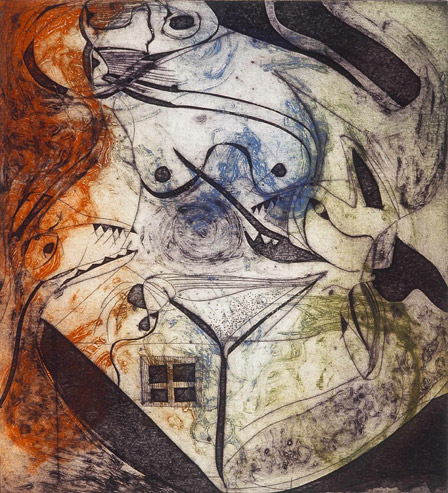
By Laura Elliff, Vice President, Native American Student Association
Thanksgiving is a holiday where families gather to share stories, football games are watched on television and a big feast is served. It is also the time of the month when people talk about Native Americans. But does one ever wonder why we celebrate this national holiday? Why does everyone give thanks?
History is never simple. The standard history of Thanksgiving tells us that the “Pilgrims and Indians” feasted for three days, right? Most Americans believe that there was some magnificent bountiful harvest. In the Thanksgiving story, are the “Indians” even acknowledged by a tribe? No, because everyone assumes “Indians” are the same. So, who were these Indians in 1621?
In 1620, Pilgrims arrived on the Mayflower naming the land Plymouth Rock. One fact that is always hidden is that the village was already named Patuxet and the Wampanoag Indians lived there for thousands of years. To many Americans, Plymouth Rock is a symbol. Sad but true many people assume, “It is the rock on which our nation began.” In 1621, Pilgrims did have a feast but it was not repeated years thereafter. So, it wasn’t the beginning of a Thanksgiving tradition nor did Pilgrims call it a Thanksgiving feast. Pilgrims perceived Indians in relation to the Devil and the only reason why they were invited to that feast was for the purpose of negotiating a treaty that would secure the lands for the Pilgrims. The reason why we have so many myths about Thanksgiving is that it is an invented tradition. It is based more on fiction than fact.
So, what truth ought to be taught? In 1637, the official Thanksgiving holiday we know today came into existence. (Some people argue it formally came into existence during the Civil War, in 1863, when President Lincoln proclaimed it, which also was the same year he had 38 Sioux hung on Christmas Eve.) William Newell, a Penobscot Indian and former chair of the anthropology department of the University of Connecticut, claims that the first Thanksgiving was not “a festive gathering of Indians and Pilgrims, but rather a celebration of the massacre of 700 Pequot men, women and children.” In 1637, the Pequot tribe of Connecticut gathered for the annual Green Corn Dance ceremony. Mercenaries of the English and Dutch attacked and surrounded the village; burning down everything and shooting whomever try to escape. The next day, Newell notes, the Governor of Massachusetts Bay Colony declared: “A day of Thanksgiving, thanking God that they had eliminated over 700 men, women and children.” It was signed into law that, “This day forth shall be a day of celebration and thanksgiving for subduing the Pequots.” Most Americans believe Thanksgiving was this wonderful dinner and harvest celebration. The truth is the “Thanksgiving dinner” was invented both to instill a false pride in Americans and to cover up the massacre.
Was Thanksgiving really a massacre of 700 “Indians”? The present Thanksgiving may be a mixture of the 1621 three-day feast and the “Thanksgiving” proclaimed after the 1637 Pequot massacre. So next time you see the annual “Pilgrim and Indian display” in a shopping window or history about other massacres of Native Americans, think of the hurt and disrespect Native Americans feel. Thanksgiving is observed as a day of sorrow rather than a celebration. This year at Thanksgiving dinner, ponder why you are giving thanks.
William Bradford, in his famous History of the Plymouth Plantation, celebrated the Pequot massacre:
“Those that scraped the fire were slaine with the sword; some hewed to peeces, others rune throw with their rapiers, so as they were quickly dispatchte, and very few escapted. It was conceived they thus destroyed about 400 at this time. It was a fearful sight to see them thus frying in the fyer, and the streams of blood quenching the same, and horrible was the stincke and sente there of, but the victory seemed a sweete sacrifice, and they gave the prayers thereof to God, who had wrought so wonderfully for them, thus to inclose their enemise in their hands, and give them so speedy a victory over so proud and insulting an enimie.”
The Pequot massacre came after the colonists, angry at the murder of an English trader suspected by the Pequots of kidnapping children, sought revenge. rather than fighting the dangerous Pequot warriors, John Mason and John Underhill led a group of colonists and Native allies to the Indian fort in Mystic, and killed the old men, women, and children who were there. Those who escaped were later hunted down. The Pequot tribe numbered 8,000 when the Pilgrims arrived, but disease had brought their numbers down to 1,500 by 1637. The Pequot “War” killed all but a handful of remaining members of the tribe.
Proud of their accomplishments, Underhill wrote a book (above) depicted the burning of the village, and even made an illustration (below) showing how they surrounded the village to kill all within it.
- John K. Wilson
Was Thanksgiving really a massacre of 700 “Indians”? The present Thanksgiving may be a mixture of the 1621 three-day feast and the “Thanksgiving” proclaimed after the 1637 Pequot massacre. So next time you see the annual “Pilgrim and Indian display” in a shopping window or history about other massacres of Native Americans, think of the hurt and disrespect Native Americans feel. Thanksgiving is observed as a day of sorrow rather than a celebration. This year at Thanksgiving dinner, ponder why you are giving thanks.
William Bradford, in his famous History of the Plymouth Plantation, celebrated the Pequot massacre:
“Those that scraped the fire were slaine with the sword; some hewed to peeces, others rune throw with their rapiers, so as they were quickly dispatchte, and very few escapted. It was conceived they thus destroyed about 400 at this time. It was a fearful sight to see them thus frying in the fyer, and the streams of blood quenching the same, and horrible was the stincke and sente there of, but the victory seemed a sweete sacrifice, and they gave the prayers thereof to God, who had wrought so wonderfully for them, thus to inclose their enemise in their hands, and give them so speedy a victory over so proud and insulting an enimie.”
The Pequot massacre came after the colonists, angry at the murder of an English trader suspected by the Pequots of kidnapping children, sought revenge. rather than fighting the dangerous Pequot warriors, John Mason and John Underhill led a group of colonists and Native allies to the Indian fort in Mystic, and killed the old men, women, and children who were there. Those who escaped were later hunted down. The Pequot tribe numbered 8,000 when the Pilgrims arrived, but disease had brought their numbers down to 1,500 by 1637. The Pequot “War” killed all but a handful of remaining members of the tribe.
Proud of their accomplishments, Underhill wrote a book (above) depicted the burning of the village, and even made an illustration (below) showing how they surrounded the village to kill all within it.
- John K. Wilson































